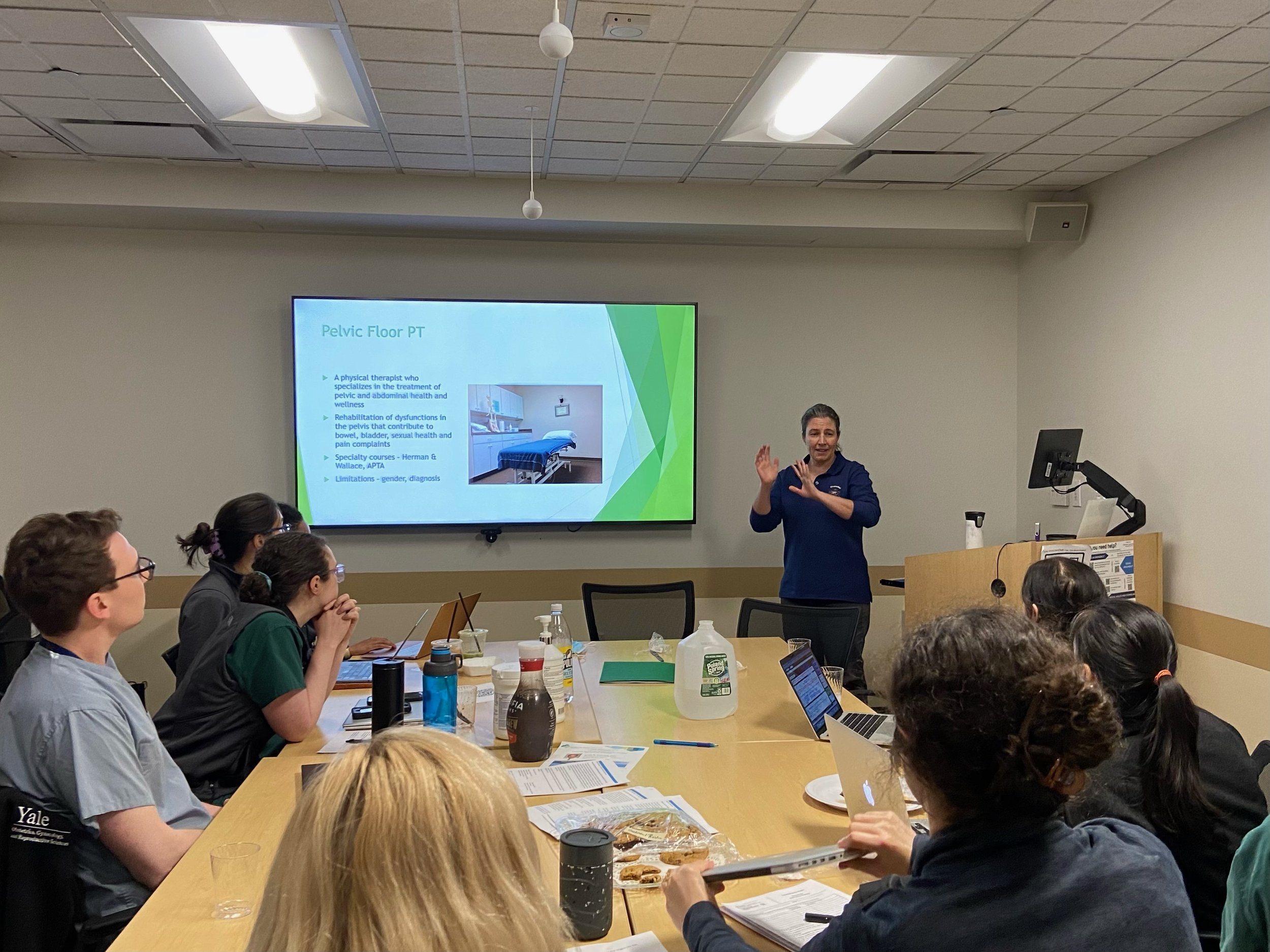Closing the gaps
in OB/GYN education.
Community Survey Results:
In a survey of 285 Tight Lipped members:
66% sought care for over 1 year before receiving a diagnosis
Many reported experiencing feelings of frustration (93%), hopelessness (83%), anger (76%), loss of confidence (73%), embarrassment (70%), despair (69%), and shame (64%) relating to their pelvic or vulvovaginal pain
48% travelled over 1 hour and 27% travelled out of their state of residence to seek care for pelvic or vulvovaginal pain
In the previous 12 months, 51% had spent over $1,000 on care and treatment for their pelvic or vulvovaginal pain, 20% had spent over $5,000, and 11% had spent over $10,000
Why is it so hard to get care for vulvovaginal pain?
Chronic vulvovaginal pain impacts up to 1 in 4 women and people with vulvas, so every gynecologist should be prepared to diagnose and treat these conditions, right?
Unfortunately, that’s not the case. Across the country, OB/GYN residents are not learning the basics of vulvar anatomy, vulvar disorders, and chronic vulvovaginal pain conditions. As a result, most patients struggle to access adequate medical care for their pain. And marginalized patient populations, including people of color and low-income patients, bear the greatest burdens of healthcare inequities and often face even greater barriers to diagnosis and treatment.
Most patients’ first stop for help with vulvar, vaginal, and pelvic pain is their OB/GYN. But OB/GYNs are not receiving the training they need to diagnose and treat these conditions. Hardly any OB/GYN residency programs in the United States provide comprehensive or standardized education on chronic vulvovaginal and pelvic pain, leaving graduating residents unfamiliar with these conditions and unprepared to care for their patients.
This gap in training leads many patients to spend years being passed from doctor to doctor. There are physical and psychological consequences when patients experience prolonged pain without support or treatment. By the time they find a provider who can treat them, if at all, their symptoms have often worsened and gotten more complex, making them harder to treat.
Our Residency Campaign: Closing the Gaps in OB/GYN Training
Tight Lipped is focused on solving this problem and making vulvovaginal care accessible to all. Our first patient-led grassroots campaign is about closing the gaps in OB/GYN education and ensuring that every OB/GYN knows how to evaluate, diagnose, and treat common vulvovaginal and pelvic pain conditions.
This campaign is the first step to transforming the medical and social landscape of vulvovaginal and pelvic health. If all OB/GYNs were equipped to accurately diagnose and effectively manage these pain conditions among diverse patient populations, access to care would dramatically increase and incidents of medical gaslighting and trauma would substantially decrease. This is essential to improving health outcomes and reducing persistent health disparities.
We’re advocating for teaching hospitals to provide training on the diagnosis and management of these conditions. In other words, our goal is for vulvovaginal and pelvic pain evaluation and management to be taught and understood as the essential healthcare that it is.
We know this is possible! Our team conducted extensive research to find models of OB/GYN programs that are already providing this education, as well as OB/GYN educators who have created teaching tools and curriculum. OB/GYN residency programs at the Mountain Area Health Education Center (MAHEC) in Asheville, North Carolina and the George Washington University (GW) in Washington, DC have developed and implemented comprehensive training on chronic vulvovaginal and pelvic pain. Additional residency programs in Canada already dedicate months to extensive training on these conditions.
Campaign Building Blocks
We launched our campaign pilot at Yale Medicine in New Haven, CT in 2023. Since then, we’ve expanded our campaign to OB/GYN residency programs in 5 states, and we’re just getting started!
Patient Perspectives Panels
Tight Lipped members share their stories and speak about their experiences navigating diagnosis, intimate relationships, and the many obstacles to accessing care for conditions like pelvic floor dysfunction, vulvodynia, endometriosis, clitoral adhesions, and undiagnosed pain. This is a unique opportunity for OB/GYN residents to understand the human impact of these conditions and why it is so important for them to learn how to treat them. Speaking about harmful medical experiences requires great vulnerability and emotional resilience. That's why it's so powerful that Tight Lipped members are telling their stories directly to rooms full of OB/GYNs so that future doctors can do better.
Expert Didactics
Tight Lipped’s Medical Advisory Board developed a list of recommended topics that all OB/GYN residents should learn about vulvovaginal pain. These topics include how to diagnose and treat different types of vestibulodynia, cliterodynia, and vulvar dermatoses, how to perform a vulvar exam and pelvic floor assessment, and when to refer to pelvic floor physical therapy. We connect residency programs with sexual medicine experts, including OB/GYNs, urologists, and pelvic floor physical therapists, to lead didactics for residents on these topics.
Didactics are lectures or other instruction residents receive as part of their training.
Grand Rounds
Grand Rounds are lectures or presentations to entire OB/GYN departments, not just residents. We’ve worked with several programs to organize Patient Perspectives Panels as Grand Rounds, and have successfully advocated for programs to organize Expert Didactics in this format.
Long-Term Commitment
Our goal is for each program to make long-term commitments to change their curriculum so that they teach all future residents the basics of vulvovaginal pain.
Model Programs
Some programs are already doing it right! These programs have comprehensive, mandatory rotations in vulvovaginal pain so that residents get hands-on experience, in addition to expert didactics.




